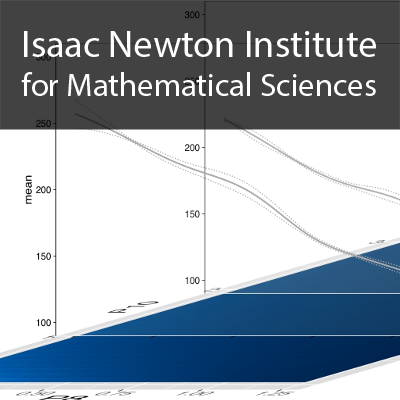Optimal Bayesian experimental design: focused objectives and observation selection strategies
1 hour 2 mins,
910.31 MB,
MPEG-4 Video
640x360,
29.97 fps,
44100 Hz,
1.95 Mbits/sec
Share this media item:
Embed this media item:
Embed this media item:
About this item

| Description: |
Marzouk, Y
Tuesday 10th April 2018 - 09:00 to 10:00 |
|---|
| Created: | 2018-04-11 14:22 |
|---|---|
| Collection: | Uncertainty quantification for complex systems: theory and methodologies |
| Publisher: | Isaac Newton Institute |
| Copyright: | Marzouk, Y |
| Language: | eng (English) |
| Distribution: |
World
|
| Explicit content: | No |
| Aspect Ratio: | 16:9 |
| Screencast: | No |
| Bumper: | UCS Default |
| Trailer: | UCS Default |
| Abstract: | I will discuss two complementary efforts in Bayesian optimal experimental design for inverse problems. The first focuses on evaluating an experimental design objective: we describe a new computational approach for ``focused'' optimal Bayesian experimental design with nonlinear models, with the goal of maximizing expected information gain in targeted subsets of model parameters. Our approach considers uncertainty in the full set of model parameters, but employs a design objective that can exploit learning trade-offs among different parameter subsets. We introduce a layered multiple importance sampling scheme that provides consistent estimates of expected information gain in this focused setting, with significant reductions in estimator bias and variance for a given computational effort. The second effort focuses on optimization of information theoretic design objectives---in particular, from the combinatorial perspective of observation selection. Given many potential experiments, one may wish to choose a most informative subset thereof. Even if the data have in principle been collected, practical constraints on storage, communication, and computational costs may limit the number of observations that one wishes to employ. We introduce methods for selecting near-optimal subsets of the data under cardinality constraints. Our methods exploit the structure of linear inverse problems in the Bayesian setting, and can be efficiently implemented using low-rank approximations and greedy strategies based on modular bounds. This is joint work with Chi Feng and Jayanth Jagalur-Mohan. |
|---|---|
Available Formats
| Format | Quality | Bitrate | Size | |||
|---|---|---|---|---|---|---|
| MPEG-4 Video * | 640x360 | 1.95 Mbits/sec | 910.31 MB | View | Download | |
| WebM | 640x360 | 632.4 kbits/sec | 287.18 MB | View | Download | |
| iPod Video | 480x270 | 526.27 kbits/sec | 238.98 MB | View | Download | |
| MP3 | 44100 Hz | 252.01 kbits/sec | 114.44 MB | Listen | Download | |
| Auto | (Allows browser to choose a format it supports) | |||||

